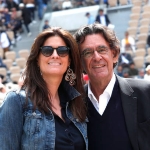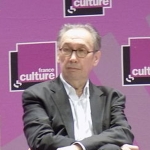Background
Luc Ferry was born on January 3, 1951, in Colombes, Hauts-de-Seine, France, to Pierre Ferry and Monique (Faucher) Ferry.

2016
1 Avenue Gabriel, 75008 Paris, France
(L-R) Michel Corbiere, Luc Ferry and his wife Matao Ferry attend "Le Retour De Marlene Dietrich": Theater Play at Espace Pierre Cardin on February 17, 2016 in Paris, France.
2016
7 Place Vendôme, 75001 Paris, France
(L-R) Haim Korsia, Helene Carrere d'Encausse and Luc Ferry attend the Scopus gala photocall at Pavillon Vendome on May 18, 2016 in Paris, France.
2016
38 Rue Jean Mermoz, 14804 Deauville, France
Christine Orban and Luc Ferry attend the Hotel Normandy Re-Opening at Hotel Normandy on June 18, 2016 in Deauville, France.
2016
Place de la Concorde, 75001 Paris, France
Luc Ferry and Marie Caroline Ferry attend La Fete des Tuileries on June 24, 2016 in Paris, France.
2016
46 Rue Cambon, 75001 Paris, France
Gonzague Saint-Bris, Luc Ferry, Michel Corbiere and Matao Ferry attend the "Diner des amis de Care" for the 70th anniversary of the Association. Held at Espace Cambon on November 21, 2016 in Paris, France.
2017
31 Avenue George V, 75008 Paris, France
Luc Ferry and Marie Caroline Becq de Fouquieres attend 'La Recherche en Physiologie' Charity Gala (Les Stethos D'Or La Soiree Des Stars) at Four Seasons Hotel George V on March 13, 2017 in Paris, France.
2017
Wife of former French Prime Minister and French presidential elections candidate for the right-wing "Les Republicains" (LR) political party Francois Fillon, Penelope Fillon and philosopher Luc Ferry (L) attend a campaign rally on April 09, 2017 in Paris, France.
15-21 Rue de l'École de Médecine, 75006 Paris, France
Luc attended Sorbonne University.
69117 Heidelberg, Germany
Luc attended the University of Heidelberg.
Luc Ferry and his daughters attend 'Fete des Tuileries': Launch Party To Benefit Meghanora Association on June 26, 2015 in Paris, France.











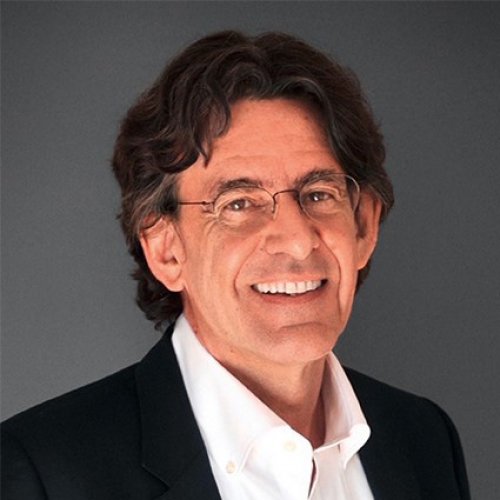




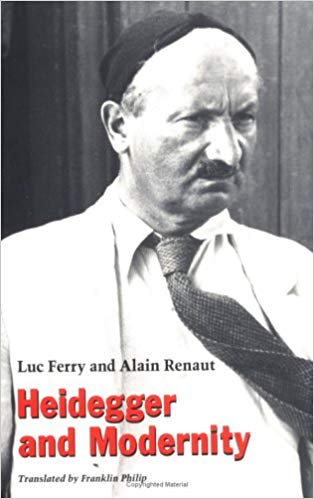
(Heidegger and Modernity is an intervention in the Heidegg...)
Heidegger and Modernity is an intervention in the Heidegger debate in France which many may see as decisive. Its central claim is that the responses of left Heideggerians to continuing disclosures regarding Heidegger's Nazi affiliations fail to come to terms with central ambiguities in his philosophical responses, both early and late, to modernity and technology.
https://www.amazon.com/gp/product/0226244628/ref=dbs_a_def_rwt_hsch_vapi_taft_p2_i10
1991
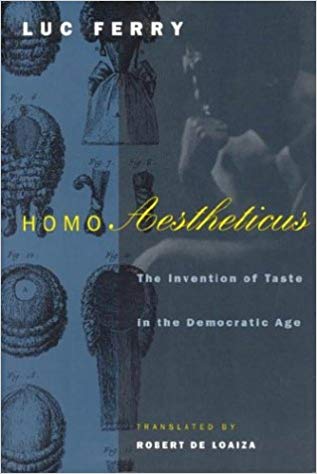
(Can subjective, individual taste be reconciled with an ob...)
Can subjective, individual taste be reconciled with an objective, universal standard? In Homo Aestheticus, Luc Ferry argues that this central problem of aesthetic theory is fundamentally related to the political problem of democratic individualism.
https://www.amazon.com/gp/product/0226244598/ref=dbs_a_def_rwt_hsch_vapi_taft_p1_i4
1993
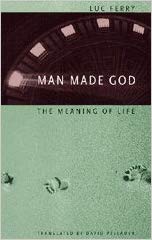
(Luc Ferry argues that modernity and the emergence of secu...)
Luc Ferry argues that modernity and the emergence of secular humanism in Europe since the eighteenth century have not killed the search for meaning and the sacred, or even the idea of God, but rather have transformed both through a dual process: the humanization of the divine and the divinization of the human. Ferry sees evidence for the first of these in the Catholic Church's attempts to counter the growing rejection of dogmatism and to translate the religious tradition into contemporary language.
https://www.amazon.com/gp/product/0226244849/ref=dbs_a_def_rwt_hsch_vapi_taft_p1_i3
2002
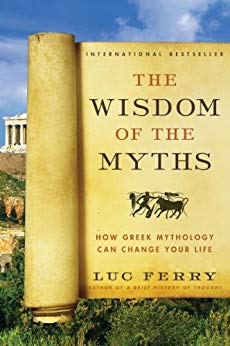
(A fascinating journey through Greek mythology that explai...)
A fascinating journey through Greek mythology that explains the myths' timeless lessons and meaning.
https://www.amazon.com/gp/product/B00DB361G0/ref=dbs_a_def_rwt_hsch_vapi_taft_p1_i2
2008
educator philosopher politician author
Luc Ferry was born on January 3, 1951, in Colombes, Hauts-de-Seine, France, to Pierre Ferry and Monique (Faucher) Ferry.
Luc attended the Sorbonne and the University of Heidelberg.
Luc Ferry was an assistant lecturer at the University Teacher Training College and Université de Reims Champagne-Ardenne. He also was a Professor of political science and political philosophy at the Institut d'études politiques de Lyon from 1982 to 1988. Besides, he taught and directed graduate research at the Pantheon-Sorbonne University, and at Caen University. He was a professor at Paris Diderot University (since 1996) but did not teach there.
From 2002 to 2004, Luc served as the Minister for Youth, National Education and Research on the cabinet led by the conservative Prime Minister Jean-Pierre Raffarin. During his tenure, he was the minister in charge of the implementation of the French law on secularity and conspicuous religious symbols in schools.
French academic Luc Ferry is known as the author of numerous well-received books on philosophy and creator of the comic book series La Sagesse des mythes which is based on Greek mythology and is published since 2016.
He is the 2013 Telesio Galilei Academy of Science Laureate for Philosophy. He was enthroned to Chevalier De La Dive Bouteille De Gaillac on the 20 march 2012 together with Max Karoubi and Francesco Fucilla.
(Luc Ferry argues that modernity and the emergence of secu...)
2002(Can subjective, individual taste be reconciled with an ob...)
1993(Heidegger and Modernity is an intervention in the Heidegg...)
1991(A fascinating journey through Greek mythology that explai...)
2008Ferry's Heidegger and Modernity, written with Alain Renaut, constructs a very ambitious political philosophy. Ferry and Renaut’s philosophical project is to preserve the most valuable aspect of modernity, the idea of human rights which are shared by all simply by virtue of the fact that we are human, whatever our particular circumstances. The book develops in great detail some ideas only briefly alluded to in French Philosophy of the Sixties.
According to Ferry, philosophy is one of our culture’s two main inventions that promise salvation. Like religion, philosophy helps us come to terms with our own mortality through symbolic escapism. A large part of the volume is devoted to a comparative analysis of the two mutually exclusive systems of beliefs, values, and learning patterns. Unlike religion, which promises salvation through the other (god), Ferry explains, philosophy encourages one to seek it in oneself, and although the first path might seem easier and more comfortable, the second brings clarity and freedom of thinking.
Written with no ambition to cover the entire history of thought, Ferry’s text traces the development of Western philosophy and the way it has been influenced by Christianity, as well as by cultural, scientific, technological and economic revolutions of the past centuries. Starting from the stoics of Ancient Greece and Rome, he takes the reader through the darkest age of philosophy, which remained in the shadow of religion until the Renaissance, to the rationalism of the modern age, Nietzsche’s militant anti-Christian writings, deconstruction and postmodern relativism - and finishes with the paradigm of today, informed by the advent of the Internet and technological advances that were unimaginable half-a-century ago.
Quotations: "We must try to understand why and how men pass from one model of reality to another. Is it because the accepted version no longer satisfies, no longer convinces? After all, several versions of reality are inherently plausible."
Luc Ferry is a former member of the Saint-Simon Foundation think-tank.
In 1974, Ferry married Schuyler Stephens, but they divorced in 1987. In 1989, Luc married Dominique Meunier, an administrator, but they also divorced in 1997. He then married Marie-Caroline Becq Fouquières.
